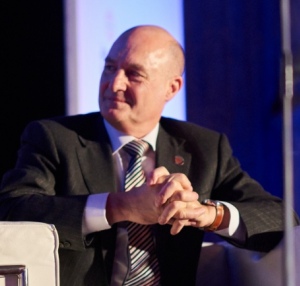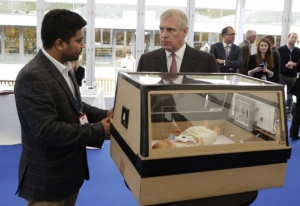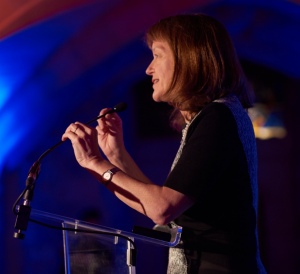International collaboration "essential" to future cities, finds global summit

The 2016 Global Innovation Summit was held in London's Canary Warf
Cities need to be smart, sustainable, and competitive to drive economic growth, according to the 2016 Global Innovation Summit.
Held in partnership with the Global Federation of Competitiveness Councils, the summit brought together influential leaders from around the world to consider how cities can develop sustainably while continuing to attract the best creative talent, businesses and investors.
The summit also saw the release of a set of principles, developed by GFCC in partnership with Imperial, to promote inclusiveness, innovation, sustainability and resilience in cities. The principles aim to supports cities and nations in their efforts to compete globally and contribute towards the United Nations’ Sustainable Development Goals.
Global challenges, global solutions
Urbanisation and booming populations are putting increasing pressure on city infrastructure -creating demand for innovation in sectors such as public utilities, healthcare and the environment, it was shown.
international mobility, collaboration and cooperation are essential for building creating a bright future for cities, for nations and for the world
– Professor Alice Gast
President
Over the course of the day, CEOs, scientists, strategy leaders and policy makers explored how cities are rising to this challenge by embracing new technology, being responsive to change, and adopting a global outlook.
Giorgos Kaminis, Mayor of Athens, outlined how the Greek capital is responding to challenges presented by his country’s economic troubles. “A major consequence of the economic crisis is brain drain,” he said. “We’re losing bright young people abroad.” Creating opportunities for entrepreneurship, especially among young people, by giving innovators access to space and mentoring, is one way the city is seeking to address this challenge and boost growth, he said.

Professor David Gann
Imperial’s Vice President (Innovation), Professor David Gann, chaired a panel exploring the concept of a ‘seamless’ city. Cities, services and new technologies should be viewed in terms of their dynamic connections and interactions, rather than in silos, he proposed.
More open and transparent data about the way cities run fuels innovation to improve urban living, he argued: “To have smooth running cities, we must optimise our use of utilities and services. We can’t do this without data.”
Professor Gann also published an article with the World Economic Forum to coincide with the summit. It argues that we can think of “cities and universities as oases in the present political turmoil.” He writes that “Brexit and Trump are just noise surrounding the march of international progress. Any new wall, real or imagined, will not stop Texan and Mexican scientists from making new discoveries and breakthroughs together.”
Student game-changers

Malav showed his invention to the Duke of York last year
Imperial student innovation was spotlighted at the summit. Former student Malav Sanghavi presented his social enterprise, LifeCradle, which has developed an inexpensive neonatal incubator made from cardboard. Designed for use in developing nations where access to healthcare infrastructure might be limited, the inexpensive device provides all the basic functions a premature or underweight baby needs in its first few days or life, while serving as a make-shift cot that families can take home with them.
Imperial student start-up Smart Hybrid, also presenting at the event, developed an intelligent energy management system for hybrid vehicles which would increase fuel efficiency without the addition of any new hardware.
Bright future

The Summit was followed by a gala dinner at the Guildhall
Speaking at the event, Professor Alice Gast, President of Imperial, said: “There is a growing perception that international cooperation in its many forms is a game played by the elite for the benefit of the elite. International collaboration and mobility are viewed by some as barriers to national prosperity and individual happiness. Some would have us think that for a country to compete and its citizens to prosper, they should retreat from globalization.
“At Imperial, we know that advances in research occur when our academics collaborate with their competitors. We embrace differences in culture and outlook because we know that these differences make us stronger.”
“I think that the same is true for cities. As we discuss their future, we need to keep top of mind that international mobility, collaboration and cooperation are essential for building creating a bright future for cities, for nations and for the world.”
Article text (excluding photos or graphics) © Imperial College London.
Photos and graphics subject to third party copyright used with permission or © Imperial College London.
Reporter
Deborah Evanson
Communications Division